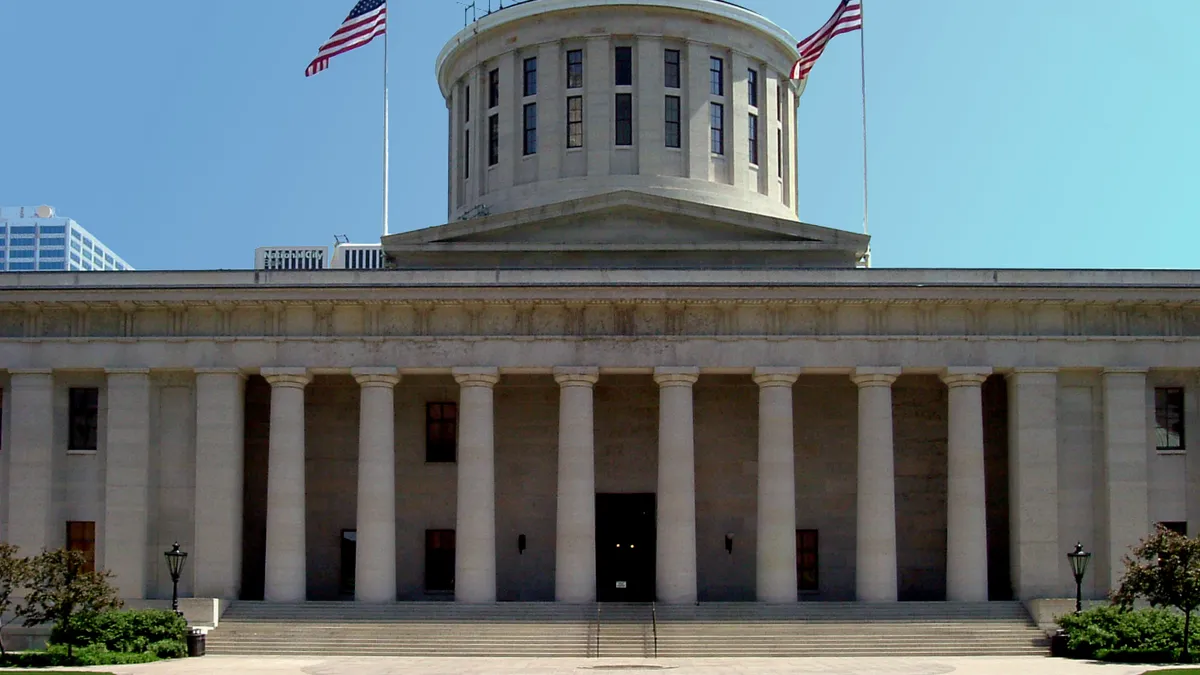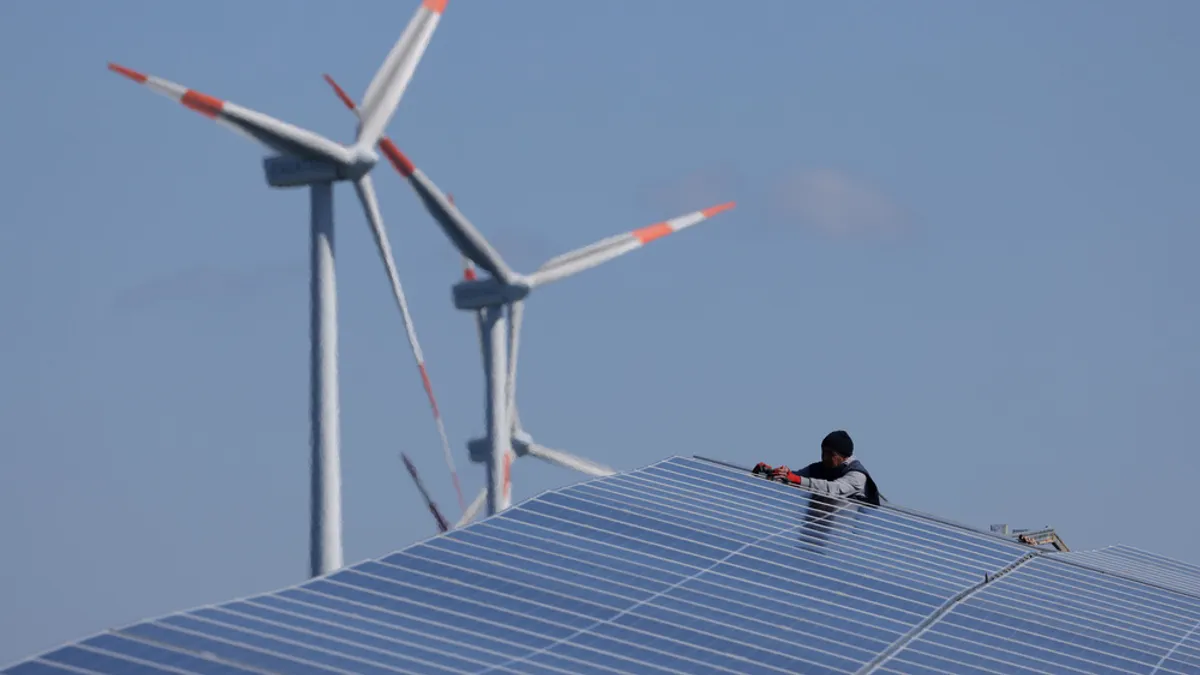Dive Brief:
- Ohio Gov. John Kasich (R) vetoed a bill that would extend the freeze on the state's mandatory renewable and energy efficiency standards, which were frozen in 2014.
- Under the bill, the standards would have remained voluntary until 2019, though it would have expanded the renewable energy standards by 7.5% by 2021. The bill also eased compliance with the state's efficiency standards by counting efficiency upgrades to power stations and wires.
- Now that the bill is vetoed, the standards are slated to come into force next year. But the state House of Representatives could attempt to override the veto, since it added two "if-needed" legislative sessions Wednesday and Thursday.
Dive Insight:
Kasich followed through on his plan to reinstate the renewable energy and efficiency standards that he chose to freeze in 2014. The governor joined clean energy advocates and a handful of Ohio businesses calling for a continuance of the standards earlier this year, saying extending the freeze was not an option.
At the time, Kasich said, "If the legislature wants to gut [the clean energy standards], then I’m going to go back to the goal that we had, which was unpalatable."
In 2014, Ohio lawmakers chose to freeze the standards at 2.5% until 2017. Under the original standard, Ohio utilities would source 25% of their power mix from alternative energy sources by 2027, including nuclear power, with half of that amount from renewable energy. Earlier this year, lawmakers drafted a bill that would extend the freeze three more years, though that was later whittled down to two as the bill passed through both legislative branches earlier this month.
Republican leaders argued freezing the standards would give the state time to adjust to energy policy changes. But clean energy advocates said stifling any progress on energy conservation and renewable energy could send jobs across state lines.
Several Ohio businesses, which employ a collective 25,000 people, also swung their weight behind those advocates, demanding more aggressive standards to meet sustainability goals. Kasich underscored those concerns in his veto message.
"Over the past six years, Ohio has enjoyed the most improved business climate in the nation," he wrote. "Job creators have attributed their reasons for expanding, growing and creating jobs in Ohio to, among other things, our state’s stable fiscal health, jobs-friendly tax climate and sound regulatory policies — as well as our state’s wide range of energy generation options.
Subsequently, the "bill risks undermining this progress by taking away some of those energy generation options, particularly the very options most prized by the companies poised to create many jobs in Ohio in the coming years, such as high technology firms."
Columbus Business First reports the fight may not be over yet. State House lawmakers have etched in two additional sessions this week that could result in an override, although the Columbus Dispatch notes the measure did not clear the legislature with a majority big enough to assure an override.
Kasich's veto decision also comes as two major utilities, First Energy and AEP, fight to re-regulate the state's energy markets to support faltering power plants.














